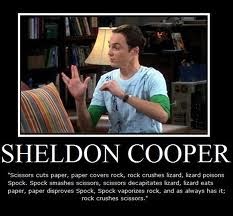Last week, I conferred with a new teacher who was struggling
to manage the behavior of her class of fourth graders. For a variety of reasons, these children have
not yet developed the ability to self-regulate, so, when released from direct
instruction, their immediate impulse is to flee
from the assigned task to anything else.
This impulse was aided by the fact that the teacher had placed their
desks in clusters of five.
When I suggested that cooperative groups might not be the
most productive arrangement for her students, she looked shocked—for about a
second—then audibly exhaled and said, “Thank you!”
For some time now, teachers have been served a pretty steady
diet of cooperative learning Kool-aid, and I feel it necessary to clear up some
misconceptions. Lest anyone think I’m simply
a curmudgeon with a fetish for desks in rows, let the record state that, for five
years, I served as a trainer in Kagan-style cooperative learning for my school
district. I believe in the value of
effective cooperative grouping. The
operative word being “effective.”
Truth #1: Sitting
together does not necessarily lead to working together. In my observations, the most common scenario I witness is the teacher’s
request that students “work together to finish this problem/ worksheet/
paragraph/ etc. In most classrooms, what
happens next is that a high-achieving, grades-oriented student in each group takes
over the task. I was this child (I am
this adult). This student will not risk allowing
others to contribute, and those others are more than happy to surrender to the
grade-grubber’s superior will. In the
absence of a high-achieving, grades-oriented group member, students will engage
in a dizzying number of stall tactics that may include but are not limited to sharpening
pencils, flipping pages randomly and/or accidentally dropping the book several
times, asking to go the bathroom, requesting clarification of the task (this
after 10 or 15 minutes have elapsed), and conversing on topics of greater
personal relevance, interest, and facility.
Truth #2: Just because
students are engaged does not mean they are learning. That said, it is important to recognize that when
students are not engaged, they’re definitely not learning. However, teachers must consider whether and how
collaboration contributes to learning goals.
Often the answer is “not at all.”
Students may enjoy the opportunity to talk to each other while working,
but unless this talk is focused on building content knowledge or skill it is
not helping them academically. Yes, yes!
Some students need to build social skills, but simply placing four kids in a
group will not make that happen any more than placing four cats in a bag will. My experience is that the students who most
need help with social skills either shut down or become hostile when forced to
work together. Most groups—whether children
or adults—require a protocol of some kind to enable them to distribute responsibilities
equally.
Truth #3: The “real
world” analogy we keep using to justify group projects is completely specious. My significant other is the director of a
team of software engineers.
- His team is made up of individuals hired specifically for their skill in writing code.
- The team knows he is in charge. He has more experience and holds institutional authority over them. As their director, he can request status reports to keep track of how the work is progressing, reprimand any team member whose work is lackluster, and recommend the firing of team members who consistently fail to perform.
- Tasks are assigned to take advantage of team members’ strengths. If they want to shore up their weaknesses, they do so on their own time.
- In the end, the only thing that matters is that the product is completed on time and according to client specifications.
·
Because the material is new, by
definition, no one is an expert.
·
Likewise, no one in in charge. Even groups that are assigned a team captain
succumb to the realities of adolescent social dynamics.
·
The goal of school activities is to help
students get better at what they do not already know how to do. If the activities tap only students’
strengths, they will not lead to learning.
·
The learning process should be more important
than the product.
Now, I realize it is a poor leader who tears ideas down without providing
alternatives. But it's Friday, and I'm tired. I’ll get to that in my
next post.
Remember to breathe in and out (repeat as necessary),
Dr. Deb




